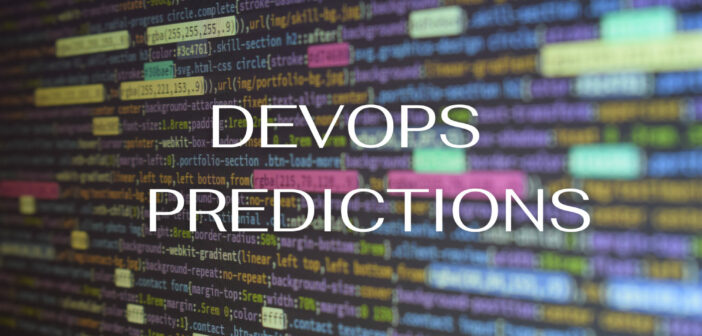Start the new year off with these six 2025 DevOps predictions. Industry players have shared where they think DevOps is headed and we wanted to share them with you so you can make informed decisions.
1. DevOps Supercharges AI-First Infrastructure in 2025
DevOps will evolve to meet the unique demands of AI-driven infrastructure, where complex ecosystems of data, machine learning models, and interconnected systems power nearly every industry. This AI ecosystem involves managing vast amounts of data, training and deploying machine learning models, and supporting scalable compute resources—all requiring specialized infrastructure. DevOps teams will expand their role, going beyond workflow automation to fully owning and optimizing these AI-first infrastructures. They’ll set best practices for managing the speed, scale, and reliability of AI applications, helping organizations harness AI efficiently and securely as it becomes central to operations. – Mehdi Daoudi, CEO at Catchpoint
2. Shift-Left Observability Becomes Standard for Developer Efficiency and MTTR Reduction
In 2025, shift-left observability is likely to be a core component of the software development lifecycle, streamlining developer workflows and becoming essential for efficient troubleshooting. With growing complexity in microservices, containerized environments, and distributed systems, traditional observability approaches are often too slow to keep pace. By integrating observability earlier in the development process, developers can actively monitor, troubleshoot, and resolve issues before they escalate to production environments, substantially reducing Mean Time to Resolution (MTTR) and enhancing developer experience (DevEx) and productivity. This shift will lead to observability platforms that seamlessly integrate with developers’ native environments, empowering them with real-time insights during coding and testing rather than relying solely on post-deployment Application Performance Monitoring (APM) systems – Ilan Peleg, CEO at Lightrun
3. The Rise of Unified Ops Teams
By the end of 2025, the lines between DevOps and AIOps will begin to blur, giving rise to unified operations teams that seamlessly integrate AI expertise with traditional software development and IT operations. These teams will manage both the software lifecycle and AI model lifecycles, enabling real-time adaptation and continuous learning. Organizations that adopt this model will see accelerated innovation, improved agility, and a competitive edge as they fully capitalize on AI-driven efficiencies. – Justin Holtzinger, Chief Revenue Officer, DevOps at Cirata
4. Unified Data Observability Platforms Will Emerge as Essential Tools for Large Enterprises
In 2025, unified data observability platforms will emerge as essential tools for large enterprises, enabling comprehensive visibility into data quality, pipeline health, infrastructure performance, cost management, and user behavior to address complex governance and integration challenges. By automating anomaly detection and enabling real-time insights, these platforms will support data reliability and streamline compliance efforts across industries. – Ashwin Rajeeva, Co-founder and CTO at Acceldata
5. Software Will Start to Learn From Usage
The first software 2.0 applications will emerge. Software development and engineering is already being democratized with tools like Copilot. However, the transformation of enterprise software is just beginning. Today, software workflows are the same whether they are executed the first time or the millionth time. New software will start to emerge in 2025 that will learn from usage, and without active coding, will improve user experience and productivity, and this will be the beginning of a 20-year era of software transformation. – Induprakas Keri – SVP and GM of Hybrid Multi-Cloud at Nutanix
6. Windows 11 Migration Delays Will Disrupt IT Priorities
Despite the fast-approaching Windows 11 migration deadline in 2025, a significant portion of enterprises—estimated at 40%—will fail to complete the migration on time. Organizations will face a last-minute rush to upgrade their systems, with many opting to pay for costly extended support plans from Microsoft rather than risk non-compliance. This scramble will disrupt IT schedules and deprioritize other strategic initiatives, such as AI integration or new infrastructure rollouts. IT departments will face tough decisions on resource allocation, with operational efficiency and innovation taking a backseat to ensure compliance. – Joel Stocker, Director of Product Marketing at ControlUp
More DevOps News

